Jerzy Sosnowski
Cyprian Kamil Norwid, a great but not very popular in his time Polish poet of the 19th century, hoped to be recognised by his „late-coming grandson”. His wish came true and Norwid has become the most avidly read classical writer. It’s difficult to gloss over Norwid’s case when writing about contemporary literature, but even more difficult it is to adopt the perspective of the late-coming grandson and forecast what works of contemporary Polish literature are going to survive the test of time. Particularly so – if we are aware of a very dynamic transformation of this literature under influence of many factors present in the wake of the political breakthrough of the year 1989. We have no choice but to take account of the great cultural turning point, which has certainly produced some unjustifiably accelerated careers, although there are also many well deserved, while some formerly great names have undergone devaluation, the duration of which is hard to fathom.
What conditions produced that commotion – quite fascinating for the reader, but a bit frustrating for the critic and the observer?
 First of all, communist censorship was abolished. Polish public was able to get acquainted with the literary stock of our émigré literature. Its Paris and London centres had published many first class works – suffice to mention Czeslaw Milosz, Witold Gombrowicz and of the younger generation – poetry of martial law period by Stanislaw Baranczak, Adam Zagajewski and Ewa Lipska. There have also been officially published the most outstanding works of the underground literature, first appearing in the „samizdat”: the political fiction style Little Apocalypse” by Tadeusz Konwicki, Kazimierz Brandys diary „Month” or the record of literary milieu’s struggle for independence under martial law – „The Term” by
First of all, communist censorship was abolished. Polish public was able to get acquainted with the literary stock of our émigré literature. Its Paris and London centres had published many first class works – suffice to mention Czeslaw Milosz, Witold Gombrowicz and of the younger generation – poetry of martial law period by Stanislaw Baranczak, Adam Zagajewski and Ewa Lipska. There have also been officially published the most outstanding works of the underground literature, first appearing in the „samizdat”: the political fiction style Little Apocalypse” by Tadeusz Konwicki, Kazimierz Brandys diary „Month” or the record of literary milieu’s struggle for independence under martial law – „The Term” by 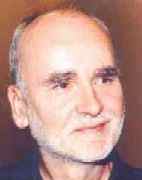 Jan Jozef Szczepanski. The fall of communism and lack of censorship released the writers from the obligation, that was a writer’s must in Poland for years: responsibility for the nation’s fate.
Jan Jozef Szczepanski. The fall of communism and lack of censorship released the writers from the obligation, that was a writer’s must in Poland for years: responsibility for the nation’s fate.
The effects are not unambiguous. Many works, inspired by a just protest against the „people’s power”, appeared to be nothing more than museum pieces. Freedom of expression, coupled with the free operation – first time in half a century – of the market forces made many a writer taylor their work to the taste of the popular public. On the other hand the positive aspects of the new situation have become manifest. The up to now relatively unnoticed but great texts of opposition writers (both home and émigré ones) have found recognition. We can mention a penetrating yet full of bravado diary by Andrzej Bobkowski – „The Pen’s Sketches” – taking account of his life in the Nazi occupied France; deeply emotional and exotic for today’s sensitivity narratives from the Ukraine by Zygmunt Haupt contained in the volume entitled – „The Paper Ring”, or the essays by Jerzy Stempowski full of dramatic tension concealed under the elegant and smooth surface of Polish literary language.
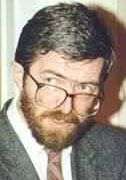 Great popularity was won by Stanislaw Baranczak – the author of an exquisite volume of poetry „Postcard from this World” drawing on the baroque tradition of English metaphysical poetry. (He is also well-known for his translations of Shakespeare and pure-nonsense poems in the mood of Lewis Carroll, Edward Lear and Ogden Nash).
Great popularity was won by Stanislaw Baranczak – the author of an exquisite volume of poetry „Postcard from this World” drawing on the baroque tradition of English metaphysical poetry. (He is also well-known for his translations of Shakespeare and pure-nonsense poems in the mood of Lewis Carroll, Edward Lear and Ogden Nash).
An unmistakably positive aspect of the new situation found its expression in the appearance of writers from the new „underground”: writers born after 1960, formerly absent in official life but also not fitting or fitting only with great difficulty politics ridden literary life of the so called II circulation.
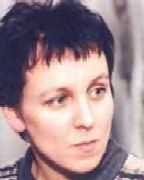 „bruLion” (scrapbook) magazine – a veritable scrapbook of the end-of-century culture – has been their herald tribune. From there several names can be moved to the regular „register”. First of all I have the poets in mind: Marcin Swietlicki – reciting his poems with his rock group and Eugeniusz Tkaczyszyn-Dycki, drawing on the Polish baroque tradition, but also the writers: Andrzej Stasiuk, Olga Tokarczuk and Izabela Filipiak.
„bruLion” (scrapbook) magazine – a veritable scrapbook of the end-of-century culture – has been their herald tribune. From there several names can be moved to the regular „register”. First of all I have the poets in mind: Marcin Swietlicki – reciting his poems with his rock group and Eugeniusz Tkaczyszyn-Dycki, drawing on the Polish baroque tradition, but also the writers: Andrzej Stasiuk, Olga Tokarczuk and Izabela Filipiak.
That sudden abundance of debuts, causing sharp polemics and the accusations of „desecrating values” on the one hand and the voices of admiration on the other, seems to be a phenomenon common for the majority of Central European countries. It seems that the local feature of that trend is taking accounts of the Romantic tradition which for 200 years had a fundamental significance in shaping sensitivities of the new generations entering social life. Already at the onset of the 1990s Prof. Maria Janion, an outstanding figure of Polish humanities, proclaimed with concern „the end of the Romantic paradigm”. That paradigm tied the Poles’ identity with their responsibilities to the national community while proclaiming rebellion of an individual against the struggle for independence. That specific Polish version of the Romantic attitude succumbed not so much to the anti-romantic position – as we can observe it at the end of the – 1990s, but to different Romanticism – drawing more on the tradition of Byron’s „The Giaour” and Mickiewicz’s arguing with God than on George Byron’s death in the struggle for freedom of Greece or Adam Mickiewicz playing the role of a national prophet in exile. Such individualistic, almost anarchistic, romanticism fused in the imagination of Polish young writers with the „flower-power” movement heritage of the 1960s and the representatives of Euro-American pop- culture. To put it in a jocular brief one can have the impression that Humphrey Bogart (in Casablanca), New York poet Frank O’Hara, Jimmy Hendrix and early, pre-émigré  Mickiewicz all patronise without any embarrassment the most vivid trend in Polish contemporary culture. Soon we will know if the function of that trend was to carry out the mental revolution in the wake of 1989 and if it is able to produce writers capable to join the line of Nobel prize laureates – Czeslaw Milosz and Wislawa Szymborska and their talent equals – Tadeusz Rozewicz
Mickiewicz all patronise without any embarrassment the most vivid trend in Polish contemporary culture. Soon we will know if the function of that trend was to carry out the mental revolution in the wake of 1989 and if it is able to produce writers capable to join the line of Nobel prize laureates – Czeslaw Milosz and Wislawa Szymborska and their talent equals – Tadeusz Rozewicz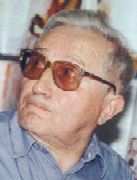 and Zbigniew Herbert. These are the four poets who form the undisputable pantheon of Polish poetry at the end of the century, regardless of the differences in poetic techniques and worldviews. The Four also provide the model of greatness that the new coming authors are expected to emulate.
and Zbigniew Herbert. These are the four poets who form the undisputable pantheon of Polish poetry at the end of the century, regardless of the differences in poetic techniques and worldviews. The Four also provide the model of greatness that the new coming authors are expected to emulate.
Poetry is discussed here not without reason. Poland is the land of poets – better or worse ones – some treating the poem as a language game, others as a personal note, still others as a method of saving the world. Just behind the Great Four I have just mentioned – Rozewicz, Herbert, Milosz and Szymborska – a score of their worthy successors is busy writing and behind those there are hundreds of hopefuls who will never be heard of beyond the small circle of faithful readers. The editors of the „bruLion” milieu poetry anthology had good reasons to observe with irony that „according to unconfirmed anthropological research there are about 600 000 practising poets in our country”. In the 1970s poetry happened to be the record of interference of politics with private life; in its better manifestation it approached the conceptual game with press releases, in the worse – the political agitprop. At the same time, under the influence of the great personality of Miron Bialoszewski, who died in 1983, an attempt to introduce colloquial language to poetry was made. Live speech was recorded so 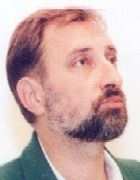 faithfully that for the uninitiated reader it might have looked as a very sophisticated avant-garde technique, something like excerpts from Joyce’s „Ulysses „spaced into lines. Both those tendencies mingled in the works of the exquisite poetic group called „The New Wave” which produced such poets as already mentioned Stanislaw Baranczak and Adam Zagajewski, but also Ryszard Krynicki, Julian Kornhauser and – occupying a separate position – Ewa Lipska. The revival of another tradition, considering the poetic work as a distant echo of the Biblical Inspired Word and a poem as the recording of epiphany, must be attributed to recently recognized poets: Krystyna Milobedzka, Bohdan Zadura or their younger Kazimierz Brakoniecki.
faithfully that for the uninitiated reader it might have looked as a very sophisticated avant-garde technique, something like excerpts from Joyce’s „Ulysses „spaced into lines. Both those tendencies mingled in the works of the exquisite poetic group called „The New Wave” which produced such poets as already mentioned Stanislaw Baranczak and Adam Zagajewski, but also Ryszard Krynicki, Julian Kornhauser and – occupying a separate position – Ewa Lipska. The revival of another tradition, considering the poetic work as a distant echo of the Biblical Inspired Word and a poem as the recording of epiphany, must be attributed to recently recognized poets: Krystyna Milobedzka, Bohdan Zadura or their younger Kazimierz Brakoniecki.
In contrast with that trend the production of the „bruLion” poets strikes the reader with the occasional brutalization of the poetic language. It introduced, even to a greater extent than it was the case with „The New Wave”, colloquial language to the poetic expression, dislike of pathos and consistent adherence to the individualistic, asocial perspective. However, under that rough disguise one can feel deep perception of the tragedy of human existence and a quest for its meaning, posed with religious-like intensity.
Religiosity, this time undisguised but open, appears also in multi-faceted and multi-generational trend marked with the names of Rev. Jan Twardowski, the late Rev. Janusz Pasierb, their younger Tadeusz Zukowski, formally related to „bruLion” Krzysztof Koehler or the youngest of them all Wojciech Wencel, only in his twenties. As an aside one can consider the growing need for religious identification discernible in the youngest poetry as a response to the sense of crisis in the existing social ties, undermined with the experiences of martial law and only briefly reconstructed at the moment of communism collapse. Religion in Poland has always been first of all the fabric of social relations.
In fiction – the equivalent of Miron Bialoszewski’s poetic practices (who was also a fiction writer) were to some extent the avant-garde writings of Leopold Buczkowski, who passed away in 1989. His path was followed by many debutantes in late 1970s. However, the most intriguing events did not take place in that mode of expression, which is now coming to its end. The present condition of the Polish prose has been mainly shaped by three factors.
The first one – increasingly evident crisis of fiction in the European culture. The indigenous manifestation of which were publications – stylised as memoirs or diaries – by Tadeusz Konwicki, Jozef Hen, 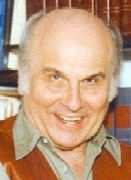 Gustaw Herling-Grudzinski or Kazimierz Brandys on the one hand and volumes of excellent reportage by Hanna Krall and Ryszard Kapuscinski, or lengthy interviews (such as „Saved in the East” by Julian Stryjkowski and conducted by Piotr Szewc, or „Half a Century of Purgatory” by Tadeusz Konwicki, interviewed by Stanislaw Beres) on the other.
Gustaw Herling-Grudzinski or Kazimierz Brandys on the one hand and volumes of excellent reportage by Hanna Krall and Ryszard Kapuscinski, or lengthy interviews (such as „Saved in the East” by Julian Stryjkowski and conducted by Piotr Szewc, or „Half a Century of Purgatory” by Tadeusz Konwicki, interviewed by Stanislaw Beres) on the other.
 The second one – based on translations of Latin- American and Anglo-Saxon fiction (Marquez, Cortazar, Vonnegut, Fowles) and – mostly in the II circulation – Czech one (Kundera, Skvorecky, Hrabal) appearing since the 1970s and accepted with enthusiasm.
The second one – based on translations of Latin- American and Anglo-Saxon fiction (Marquez, Cortazar, Vonnegut, Fowles) and – mostly in the II circulation – Czech one (Kundera, Skvorecky, Hrabal) appearing since the 1970s and accepted with enthusiasm.
Those two factors established the important context of coming literary debuts.
The third essential factor was the final recognition of intellectual weight of Stanislaw Lem’s writings, whose great popularity was considered for decades somewhat ambiguous by many a critic since he had became famous as the author of science fiction, a genre of rather dubious reputation. Paradoxically, the moment when Lem discarded writing of space narratives (which for a long time he had already treated as a grotesque), the whole host of his disciples arose, subscribing under his authority, encouraged by his example but also by translations into Polish of such writers as Ursula LeGuin, John Tolkien, Philip Dick or Frank Herbert – who are combining rules and props of science fiction and fantasy with serious intellectual pursuits.
This combination must provide an explanation of the phenomenal popularity of such authors as Andrzej Sapkowski, Marek Oremus or Rafal Ziemkiewicz. In the period of system transformation, when the publishing sector in the country struggled, risking complete defeat, science-fiction and fantasy writings remained the only genre of indigenous ambitious literature, which was able to survive without the state’s financial support.
We have already mentioned the crisis of fiction. That what appeared to be a symptom of disease for the enthusiasts of the novel may well be perceived as its flourishing by those having a different point of view, i.e. the rich development of non-fiction prose, especially the essay. That sophisticated genre turned out to be the kind which attracted new readers with personages until then known only to university wits. A brilliant book, constructing the analogy between the condition of the contemporary intellectual and the hermit of the late antiquity was published by the professor of Polish and Russian Literature Ryszard Przybylski ( „Hermits and Demons”, 1994). Prof. Jaroslaw Rymkiewicz is an author of the whole series of essays on the life and work of Adam Mickiewicz. Each successive volume reveals more openly the debate on the present condition of the Polish culture and its specificity in the face of European integration processes. Confrontation with European and American culture has been depicted by Wojciech Karpinski and Krzysztof Rutkowski, whose efforts had to be compared inevitably with the master work of this kind, i.e. „The Barbarian in the Garden „by Zbigniew Herbert published almost 30 years ago. Maria Janion, mentioned before, has joined the forming feminist movement with her book „Women and the Spirit of Difference”, causing a very heated debate among the fans of that great scholar’s work.
 The borderland of philosophy and theology has been explored by prof. Leszek Kolakowski, unmistakably the most popular Polish philosopher. Strange prose, which is treated by some as an essay sui generis, devoted to the history of Warsaw – or the generalised fate of the City – was penned by one of the most adulated debutantes of the last years, Magdalena Tulli („Dreams and Stones”, 1995). Brilliant, although controversial, religious and cultural essays were written by Pawel Lisicki, who thus has inscribed himself into the vivid debate on the shape of Polish Catholicism today. It is not so that the decline of fiction writing – or rather its degradation to the lower genre addressed to less demanding reader – is a completed or irreversible process. At present one can even have the impression that, to the contrary, Polish novel and short story are in a better shape than it was the case fifteen years ago. It’s not only thanks to the masters – Wieslaw Mysliwski or Piotr Wojciechowski – who reminded themselves to the readers after years of silence with such books as „The Horizon” and „Harpooner in the Abyss”.
The borderland of philosophy and theology has been explored by prof. Leszek Kolakowski, unmistakably the most popular Polish philosopher. Strange prose, which is treated by some as an essay sui generis, devoted to the history of Warsaw – or the generalised fate of the City – was penned by one of the most adulated debutantes of the last years, Magdalena Tulli („Dreams and Stones”, 1995). Brilliant, although controversial, religious and cultural essays were written by Pawel Lisicki, who thus has inscribed himself into the vivid debate on the shape of Polish Catholicism today. It is not so that the decline of fiction writing – or rather its degradation to the lower genre addressed to less demanding reader – is a completed or irreversible process. At present one can even have the impression that, to the contrary, Polish novel and short story are in a better shape than it was the case fifteen years ago. It’s not only thanks to the masters – Wieslaw Mysliwski or Piotr Wojciechowski – who reminded themselves to the readers after years of silence with such books as „The Horizon” and „Harpooner in the Abyss”. 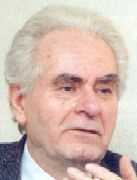 Also younger writers have contributed to this change by searching, like their elder colleagues, for the myth which would introduce a modicum of transcendental order into our chaotic world. They mastered their writing skills by reading postmodern literature of Anglo-Saxon writers. It is striking that in their first books they tried to avoid entanglement in the specific Polish problems while preserving the specificity of the place where they happen to be living, with it complex history that had often been overlooked before. Hence the abundance of texts devoted to the cultural borderland, fascinating but also dramatic histories of Polish-German, Polish-Jewish and Polish- Ukrainian relations. A significant and varied library can be made up of the novels dealing with the phenomenon of Gdansk („Weiser Davidek”) by Pawel Huelle, „Haneman” by Stefan Chwin, „Absolute Amnesia” by Izabella Filipiak
Also younger writers have contributed to this change by searching, like their elder colleagues, for the myth which would introduce a modicum of transcendental order into our chaotic world. They mastered their writing skills by reading postmodern literature of Anglo-Saxon writers. It is striking that in their first books they tried to avoid entanglement in the specific Polish problems while preserving the specificity of the place where they happen to be living, with it complex history that had often been overlooked before. Hence the abundance of texts devoted to the cultural borderland, fascinating but also dramatic histories of Polish-German, Polish-Jewish and Polish- Ukrainian relations. A significant and varied library can be made up of the novels dealing with the phenomenon of Gdansk („Weiser Davidek”) by Pawel Huelle, „Haneman” by Stefan Chwin, „Absolute Amnesia” by Izabella Filipiak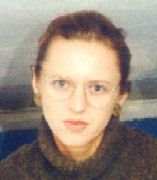 , „Traces in the Sand” by Marek Jastrzebiec-Mossakowski). The culture of Evangelical minority in Cieszyn Silesia provides the context for tragicomical novels by Jerzy Pilch. German Wroclaw became the setting of the second novel by Olga Tokarczuk („EE.”, 1994), while in her next one she focused on Central Poland, where from she derived her personal myth. Polished off the official language, almost intimate account of discovering of the Polish-Jewish past can be found in the beautiful book „The White Stone” by Anna Bolecka. The realities of the Polish-Ukrainian borderland (Lemki people) appeared in the unabashedly myth-creating novels by
, „Traces in the Sand” by Marek Jastrzebiec-Mossakowski). The culture of Evangelical minority in Cieszyn Silesia provides the context for tragicomical novels by Jerzy Pilch. German Wroclaw became the setting of the second novel by Olga Tokarczuk („EE.”, 1994), while in her next one she focused on Central Poland, where from she derived her personal myth. Polished off the official language, almost intimate account of discovering of the Polish-Jewish past can be found in the beautiful book „The White Stone” by Anna Bolecka. The realities of the Polish-Ukrainian borderland (Lemki people) appeared in the unabashedly myth-creating novels by 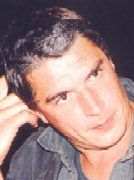 Andrzej Stasiuk, settled in the Beskid mountains. Such concrete, private geography, the area of little homeland, is also evident in „Miss Nobody” by Tomek Tryzna, in spite of its definitely sarcastic tone. That last book has proved to be – besides the quasi horror novel „Sisters” by Malgorzata Saramonowicz – the greatest publishing success since 1989. Undoubtedly, the enthusiastic review of this novel by Czeslaw Milosz, that was published in the daily press, has contributed to that success.
Andrzej Stasiuk, settled in the Beskid mountains. Such concrete, private geography, the area of little homeland, is also evident in „Miss Nobody” by Tomek Tryzna, in spite of its definitely sarcastic tone. That last book has proved to be – besides the quasi horror novel „Sisters” by Malgorzata Saramonowicz – the greatest publishing success since 1989. Undoubtedly, the enthusiastic review of this novel by Czeslaw Milosz, that was published in the daily press, has contributed to that success.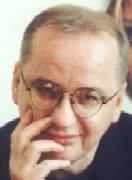
Many of the titles mentioned here have already been or will be filmed, what might also be considered the proof that fiction in Poland is flourishing. We should not forget, however, that in literature the most precious is the word. Thus the most elaborate novel of the last period – „Terminal” by Marek Bienczyk – a dissertation on melancholy full of irony and overflowing with hints and crypto-quotations will certainly not be able to attract any film director’s attention. Moreover, the opportunity for this and other novels to find their way to the foreign readers is fully dependent on the translators’ efforts – there are only a few of them, although of the highest class. Without them melancholy would have to reign also over that panoramic view of Polish literature, forcing us to end this review with the line by Zbigniew Herbert: „This water, those words, sweet Prince, what can they do…”
Translated by Marek Szopski
O grach na pieniądze o tematyce książkowej krążą dziś legendy. Jedną z najpopularniejszych gier hazardowych tego typu jest oczywiście nieśmiertelny automat na pieniądze Book of Ra. Gra ta została wprowadzona na rynek online kilkanaście lat temu i od razu podbiła serca wszystkich graczy. Bez wyjątku! Tytuł ten zrewolucjonizował branżę gier online i doczekał się setek imitacji. Zasady Book of Ra są dość proste: towarzyszymy przystojnemu łowcy skarbów w wycieczce do wnętrza piramidy. To, czy uda nam się odnaleźć mega cenną tytułową Księgę Ra, zależy oczywiście od szczęścia. Gracz stawia zakłady na liniach oznaczonych od 1 do 10, wśród symboli mamy kilka mniej płatnych symboli karcianych i wysoko płatne symbole nawiązujące do starożytnych bóstw. Gra posiada symbol Wild i Scatter, oferuje również darmowe obroty. Znaleźć ją można w najlepszych polskich kasynach internetowych na pieniądze. Sprawdźcie koniecznie tytuły nawiązujące do tej znanej serii, znajdziecie je w portfoliach takich producentów jak Pragmatic Play czy Play’n GO.